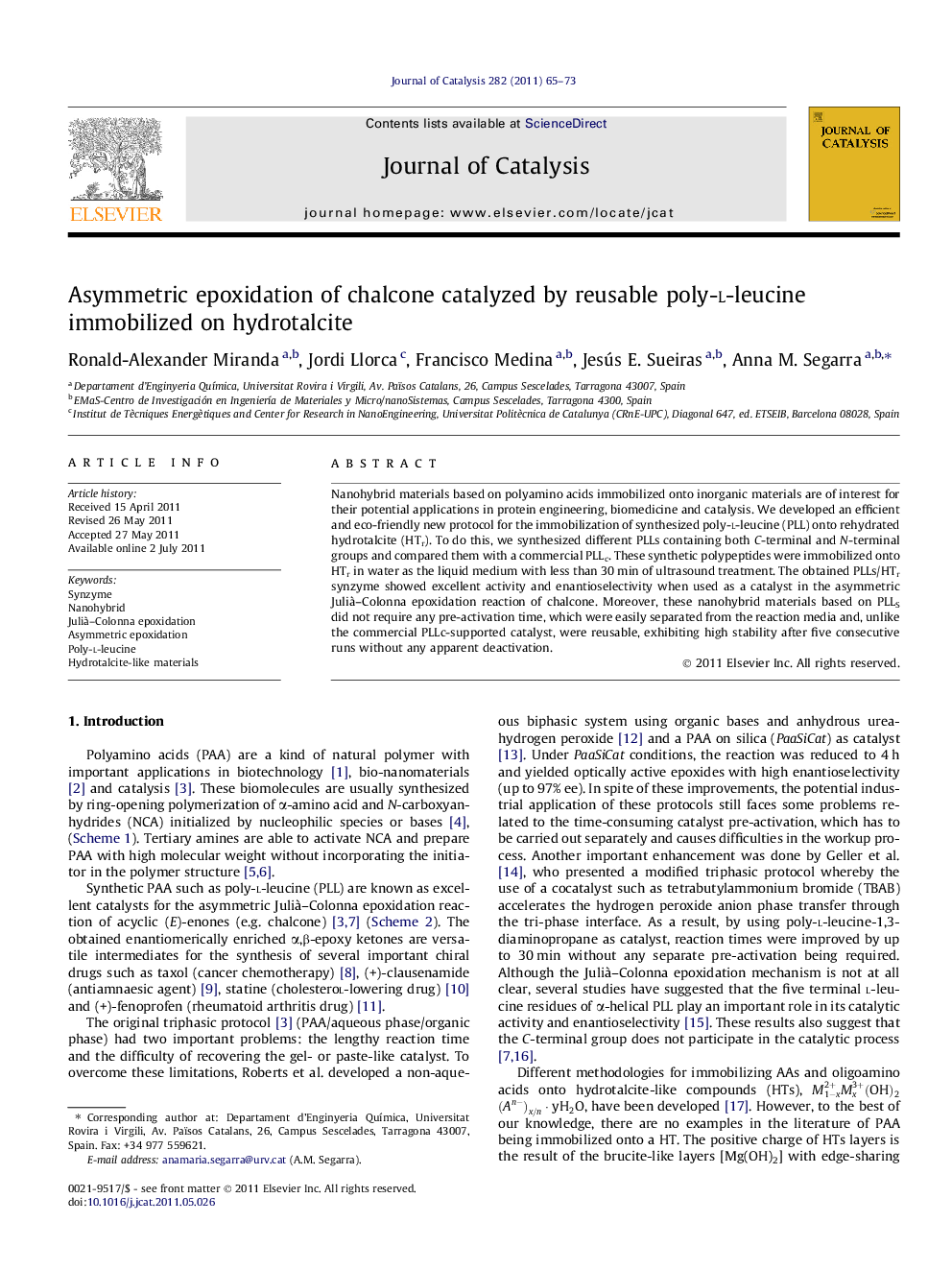| Article ID | Journal | Published Year | Pages | File Type |
|---|---|---|---|---|
| 61620 | Journal of Catalysis | 2011 | 9 Pages |
Nanohybrid materials based on polyamino acids immobilized onto inorganic materials are of interest for their potential applications in protein engineering, biomedicine and catalysis. We developed an efficient and eco-friendly new protocol for the immobilization of synthesized poly-l-leucine (PLL) onto rehydrated hydrotalcite (HTr). To do this, we synthesized different PLLs containing both C-terminal and N-terminal groups and compared them with a commercial PLLc. These synthetic polypeptides were immobilized onto HTr in water as the liquid medium with less than 30 min of ultrasound treatment. The obtained PLLs/HTr synzyme showed excellent activity and enantioselectivity when used as a catalyst in the asymmetric Julià–Colonna epoxidation reaction of chalcone. Moreover, these nanohybrid materials based on PLLS did not require any pre-activation time, which were easily separated from the reaction media and, unlike the commercial PLLc-supported catalyst, were reusable, exhibiting high stability after five consecutive runs without any apparent deactivation.
Graphical abstractHighly active and recyclables nanohybrid synzymes for asymmetric epoxidation reaction.Figure optionsDownload full-size imageDownload high-quality image (80 K)Download as PowerPoint slideHighlights► New methodologies for the synthesis of poly-l-leucine with C-terminal and N-terminal groups. ► Synthesis and characterization of nanohybrid materials based on poly-l-leucine immobilized on rehydrated hydrotalcite under ultrasounds. ► High activity and enantioselectivity towards the trans-(R,S)-epoxide in Julià–Colonna epoxidation reaction. ► Reusability of the nanohybrid catalyst for several consecutive runs in the Julià–Colonna epoxidation reaction.
